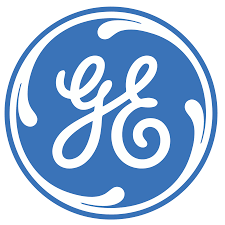
General Electric Co. is in advanced talks to buy the drill-bits and drilling-services divisions of Halliburton Co., which is divesting assets to win antitrust approval for its takeover of Baker Hughes Inc., according to people familiar with the matter.
Selling both the drill-bits and drilling-services businesses could have fetched as much as $5 billion in total for the oilfield services provider, people with knowledge of the matter said earlier this year, when the units were each put on the block.
It is not clear how much the decline in oil prices — which have been hovering near six-year lows — may have affected their respective market values.
GE is also exploring bids for other assets that Halliburton is seeking to unload, including parts of Baker Hughes’s completions operations, two of the people said, asking not to be identified because the matter is private.
No final deal with GE has been reached, and Halliburton may still decide to sell some or all of the other assets to other buyers, said the people.
Representatives for GE and Halliburton declined to comment.
When it first announced plans to acquire Baker Hughes in November 2014 — a deal valued at $34.6 billion in cash and stock deal at the time — Halliburton said it would divest assets with revenue of as much as $7.5 billion.
The first assets put up for sale in April were Halliburton’s drill-bits and drilling services business.
The former makes the tips of drills for digging wells and could fetch as much as $2 billion in a sale, people familiar with the matter said in March.
The drilling-services arm, which operates as Sperry Drilling, uses data to track and steer the direction of drill bits and may sell for as much as $3 billion, the people said at the time.
Halliburton announced a second group of asset sales in September that included businesses essential for building new wells and controlling the flow of oil. All of the assets being cleaved off still add up to revenue that is less than the $7.5 billion threshold originally announced.
While the merger-closing timeline has already been pushed back by three weeks to Dec. 15 at the earliest, there remains a strong likelihood the deal doesn’t close until sometime in 2016, Halliburton’s acting Chief Financial Officer Christian Garcia said Wednesday at an energy investor conference.
“We’re making good progress with our divestitures with respect to the first tranche, which is our drilling services and drill bit assets,” Garcia said at an event in New York hosted by Wells Fargo & Co., according to a transcript compiled by Bloomberg.
“We are finalizing negotiations with a potential buyer, including setting the terms and conditions for the relevant divestiture agreements.”
GE has built up its oil and gas unit over the past decade through more than $10 billion in acquisitions, including a $3.3 billion deal in 2013 for Lufkin Industries Inc.
The oil and gas business is central to Chief Executive Officer Jeffrey Immelt’s strategy to expand industrial manufacturing divisions while shrinking consumer-focused and lending operations.
While the slump in oil prices has weighed on earnings in GE Oil & Gas, the company has indicated a willingness to continue expanding in that area. At an industry conference this month, Lorenzo Simonelli, CEO of GE’s oil division, said he will “remain opportunistic” about potential acquisitions.
Halliburton’s bid for Baker Hughes has been fraught with antitrust hurdles. Last month, the company sought European Union approval for the takeover a second time, four months after regulators rejected an earlier filing about the bid to combine the world’s No. 2 and No. 3 providers of oil services.
The proposed transaction has faced resistance from US officials, who are concerned the tie-up could hurt competition, a person familiar with the matter told Bloomberg News in July.
The officials are concerned that the oilfield services industry would become too concentrated and although Halliburton has proposed selling some assets to other companies, government officials weren’t convinced that plan went far enough, the person said.
The Justice Department is facing a Dec. 15 deadline to decide on the combination, though that could be extended.
The European Commission set an initial deadline of Jan. 12 to rule and may still opt to open an in-depth probe lasting about four months if remedies fail to allay competition concerns.
Australia’s competition watchdog has also queried the transaction, and delayed its decision until Dec. 17 after asking for more comments from market participants.
Recommended for you
